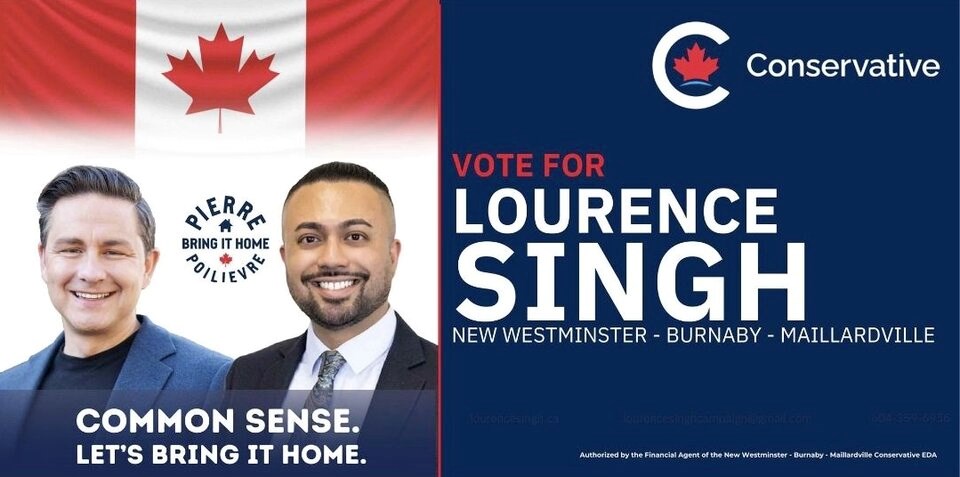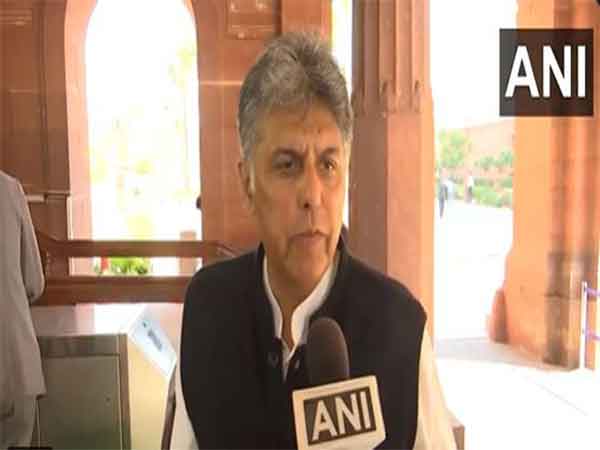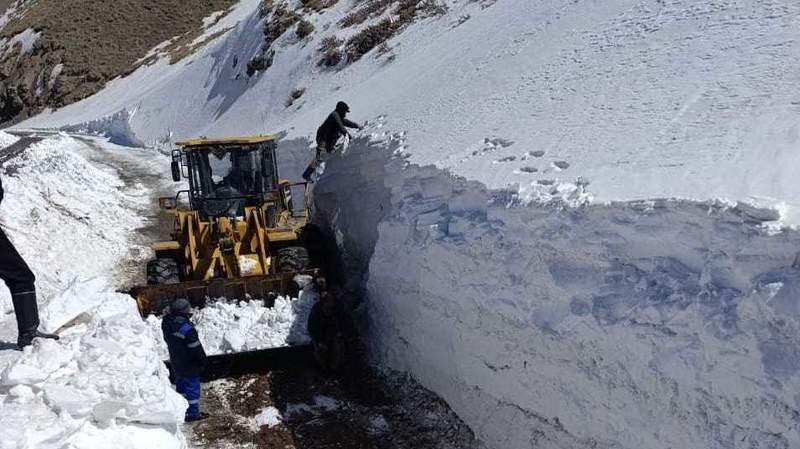
A Conservative candidate ejected Tuesday from running in an upcoming federal election had previously defended China’s system of government and framed its persecution of a minority group as a state move against “terrorism.” Former New Westminster-Burnaby-Maillardville candidate Lourence Singh was dropped from the Conservative slate April 1 alongside two other candidates in Ontario and Quebec. Stefan Marquis said he had been dropped from his riding in Montreal for posting a " non-vetted tweet " to the X.
com social media platform. Southwest Ontario Conservative candidate Mark McKenzie was also booted from the race Tuesday after CTV published excerpts from a podcast where he said he supported “public hangings” and joked that former Prime Minister Justin Trudeau should receive the death penalty. But when asked why Singh was eliminated from contention, the party never gave a reason.

Singh has done few public interviews. In 2021, however, he spoke with Vancouver-based comedian Sahib Rana on his podcast A Little Bit Serious With Sahib. Born in Hong Kong, Singh told Rana he moved to Canada at two years old and later returned to China “several times.
” “When you’re living as an everyday person, it’s very free,” Singh told the host. “It’s very, very similar in that sense to most other countries.” “The only real freedom that’s restricted is freedom to speak adversely or harshly against the government.
And that’s because they want to keep it consistent where everyone is unified, like everyone is moving forward together.” Singh added that China has “found the right balance” between its system of governance and free markets. Turning to the situation in the western Chinese state of Xinxiang, Singh questioned media reports that the government was “ethnically cleansing people” and “putting them into camps.
” Singh said he doesn’t think China has “any severe negative perceptions of Muslims” but was trying “to prevent terrorism.” “What the Chinese government is saying, they’re trying to educate people not to have radical views,” he said. “And because it’s a poor region, they’re trying to give them skills to have jobs to, like if they can be a server, a hostess, you know, enter various jobs.
.. not to have radicalized thoughts.
” A 2022 report from the United Nations found China’s treatment of the Uyghur minority population of more than 11 million people may constitute crimes against humanity. The UN report came shortly after UN High Commissioner of Human Rights, Michelle Bachelet, said that “allegations of patterns of torture, or ill-treatment, including forced medical treatment and adverse conditions of detention, are credible, as are allegations of individual incidents of sexual and gender-based violence.” In a rebuttal, the Chinese government denied the claims, stating “the accusation that its policy [in Xinjiang] is ‘based on discrimination’ is groundless.
” It’s not clear if Singh’s comments on the podcast prompted the Conservative Party of Canada to disqualify him as a candidate. A spokesperson for the party did not respond to questions from BIV. When asked whether his comments on the podcast prompted his removal as a candidate, Singh said he had no comment.
In a text message, Singh added that he had a nine-minute phone call with someone from the Conservative Party of Canada on Monday where he was told he no longer would be allowed to continue as a candidate. “A reason was provided to me,” said Singh, who did not offer up the reason to BIV when asked. He added that he is appealing the decision with the Conservative Party of Canada's National Council.
University of British Columbia political scientist Stewart Prest said Singh’s comments appear to minimize and call into question what others have reported and confirmed as widespread repression in Western China. Singh is effectively making the case, said Prest, that for most people, life there is not so bad. “Having learned from our own experience about the evil that can come from something like a residential school system, this is obviously a very sensitive subject,” said Prest.
“I can see why voters would be outraged if they heard those views surface, and why the Conservative Party would be anxious to dissociate themselves from those.” Prest said dropping Singh as a candidate could indicate the Conservative Party is adopting a zero-tolerance policy on sympathetic views toward the Chinese government — especially at a time when both of Canada’s major parties have faced questions over foreign interference. “It speaks to a Conservative Party, I think, trying to really hone its message, and if necessary, doing so by distancing itself from candidates who fall outside that message box that they're trying to present,” Prest added.
“Of course, all this is entirely contingent on whether there's something else that triggered this.” Singh’s removal from the race comes within days of Toronto-area Liberal candidate Paul Chiang withdrawing his name from the ballot after he suggested people claim China's bounty on Conservative candidate Joe Tay. In recent years, Canada’s intelligence bodies have consistently warned of foreign governments attempting to influence the Canadian political system.
A June 2024 report from the National Security and Intelligence Committee of Parliamentarians (NSICOP) said there were two “specific instances” where Chinese officials allegedly interfered with in Conservative Party of Canada leadership races. Recent reporting by The Globe and Mail alleged the Canadian Security and Intelligence Service (CSIS) assessed that the Indian government meddled in the 2022 Conservative leadership race. There is no evidence that Conservative Leader Pierre Poilievre would have lost the race had the alleged interference not occurred.
But the reporting raised other questions around how parties can vet candidates and aides without access to high-level intelligence. Poilievre has repeatedly said he has avoided getting security clearance to be briefed on top secret matters because it amounts to an “ oath of secrecy ” carried out at the behest of the Liberal Party. The briefings, which can include information related to foreign interference, are carried out by CSIS, Canada’s non-partisan intelligence agency.
In January, Justice Marie-Josée Hogue released a final report from a public inquiry into foreign interference of Canada’s electoral process and democratic institutions. One of her major recommendations was that all political party leaders get top secret security clearance. “A party leader without a clearance may not be able to receive the detailed information they need to understand and act against the foreign interference risk facing their party,” the report said.
With files from the Canadian Press.











